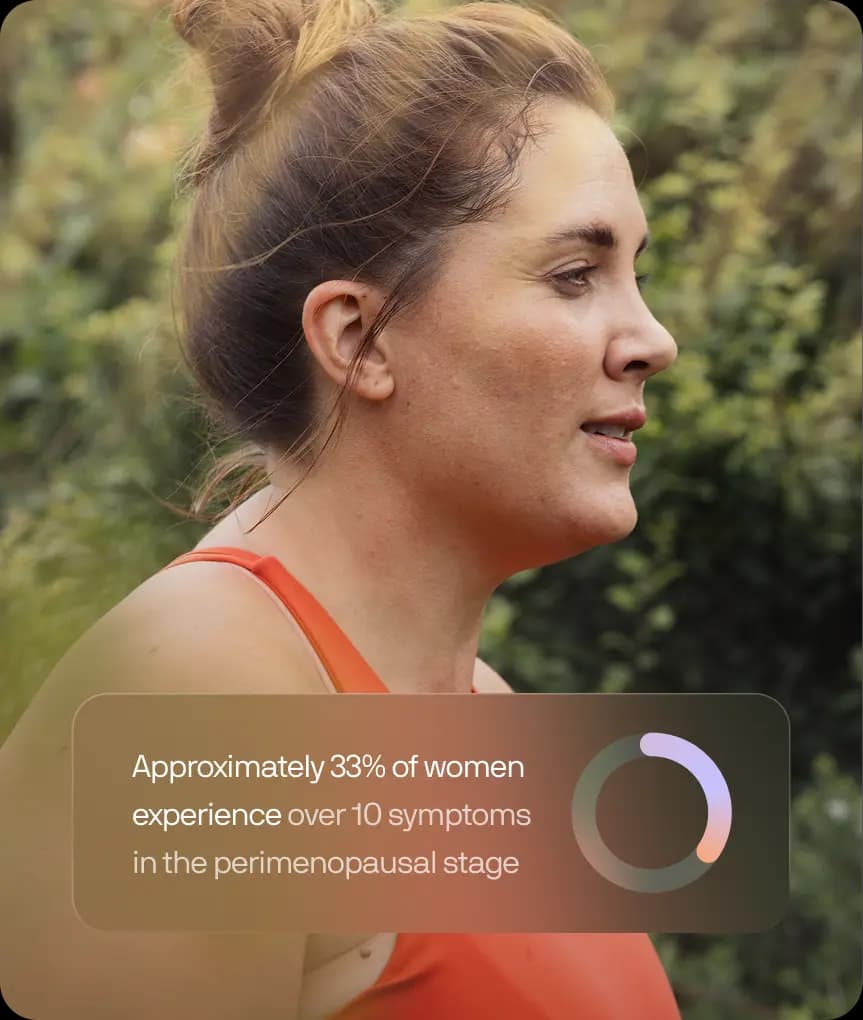Your symptoms are real. And yes, they can be perimenopause.




What is perimenopause?
Perimenopause is the time before your periods stop. Often years before your periods stop, oestrogen can start to fluctuate. For many, it’s when symptoms hit the hardest. Our survey of over 6000 showed it is common to experience more than 10 symptoms during perimenopause.
You may still have periods, even regular ones, but also:
How Voy works
- 1
Start with an appointment
45-minutes online, giving you time to talk, feel heard and get answers.
- 2
Continue with your treatment
After your appointment, start your 3 month plan, if you choose.
- 3
Access unlimited care
Book in to speak to your expert whenever you need.

Common symptoms of perimenopause
Anxiety, irritability and mood swings are the most common symptoms of perimenopause experienced, with 78% of women reporting that they experience them

Understand the cause of your symptoms, with a comprehensive blood test
For women 40+, this test checks if symptoms like tiredness, poor sleep, weight gain or low mood may be linked to hormones.
We offer a full range of treatments for your symptoms - HRT and more
Our team all have additional training in menopause, and hormones. They are hand selected for their experience, warmth and empathy

It’s a privilege to spend time with patients to understand their unique treatment needs and priorities and together create a management plan to address them.

I believe deeply in the power of listening. Every woman deserves to feel seen, heard, and supported on her journey through hormonal change.

I am passionate about supporting women through every stage of menopause with empathy and evidence-based care, helping them feel heard and understood.

Taking an individual approach is key to providing the best care plan for each woman and empowering personal choice.

I am passionate about empowering women with the knowledge to manage their health confidently and holistically.

I offer a holistic approach to understanding the processes that maintain psychological distress during this transitional time.
Learn
Answer a few questions, to be guided to the right care






